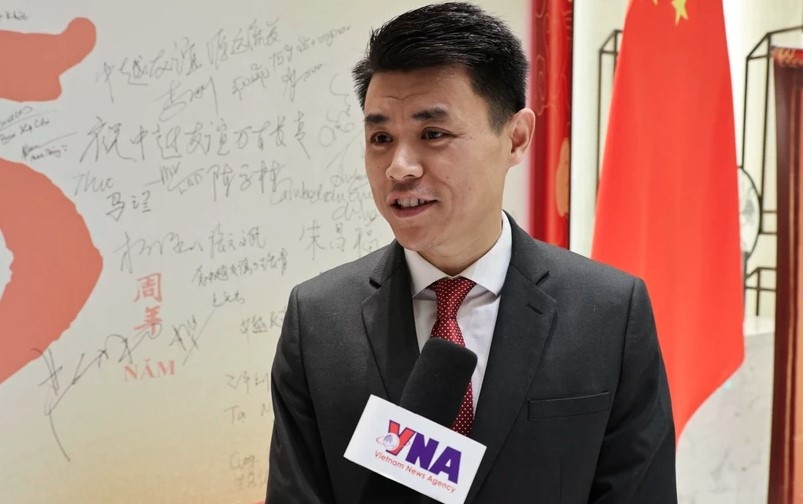CPV’s leadership shapes Vietnam’s future: Chinese expert
Wei Wei, a researcher on Vietnam and head of the Vietnamese Language Department at the China Central Radio and Television, stressed that the Communist Party of Vietnam has played an essential role in the country’s renewal process.

Speaking to Vietnam News Agency (VNA) correspondents in Beijing on the occasion of the CPV’s 95th anniversary (February 3, 1930 – 2025), Wei highlighted that the CPV has always positioned itself as a ruling party for the people with a people-centred approach.
Under the Party’s leadership, Vietnam has made remarkable progress in socio-economic development, with the 2024 GDP expanding 7.09% compared to 2023. Despite facing global economic challenges, Vietnam’s economy has shown strong signs of recovery, positioning the country as a bright spot for economic growth both regionally and globally, Wei noted.
Assessing the significance of the anti-corruption drive and efforts to streamline the political system’s organisational apparatus, he said that Vietnam has made significant strides in its anti-corruption campaign, yielding tangible results. The political environment has become more transparent, boosting public trust in the Party and the State.
Wei pointed out that, alongside the fight against corruption, Vietnam has been actively reforming its administrative structure. In December 2024, the Party Central Committee approved a bold plan to reorganise and streamline the political system’s organisational apparatus with a broad and unprecedented scope. According to Wei, these efforts are in response to the demands of the modern era, aiming to create a Party and State system better suited to Vietnam’s social development. This will help enhance and improve the socialist system and drive the modernisation of the country’s governance, he added.
Regarding the opportunities and challenges Vietnam faces in pursuing its goals in the new era of the nation’s rise, the Chinese expert stressed that the world is undergoing significant changes, with growing global tensions and conflicts. In this context, Vietnam’s socio-economic progress has stood out as a major success story in the region and beyond. This not only helps Vietnam continue optimising its economic structure, but also builds confidence among international investors.
Vietnam’s target of becoming a developed, high-income country by 2045 will bring improved living standards for its people and enhance its global influence. However, Wei pointed out that several challenges lie ahead.
He suggested Vietnam maintain its independent, self-reliant, and peaceful development path, which has been key to its recent achievements. At the same time, the country must ensure political stability, particularly by countering hostile forces attempting to destabilise or undermine the political system, as national division will hinder growth. Finally, Vietnam should continue to build strong international partnerships to create favourable conditions for achieving its development goals, he underscored.


